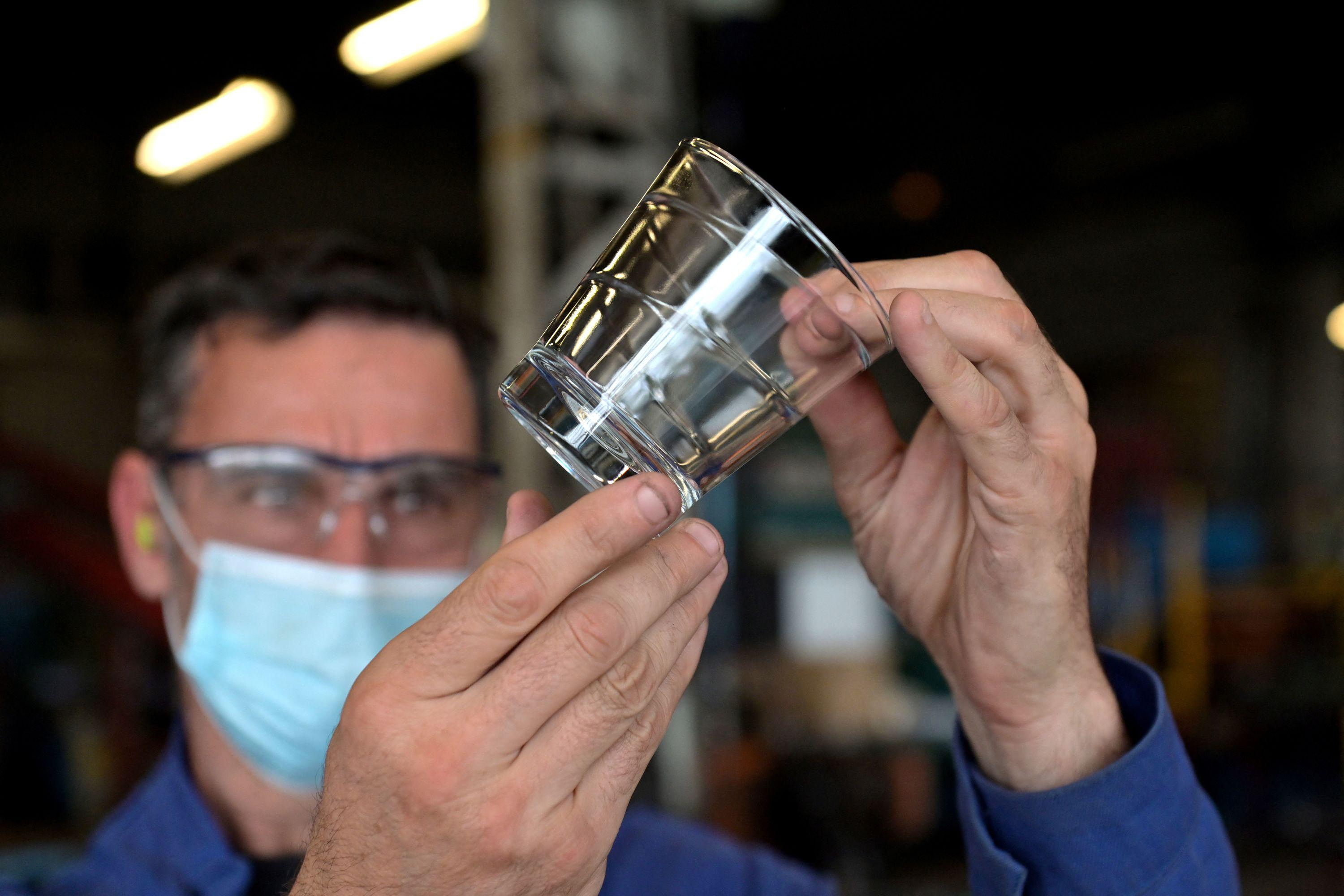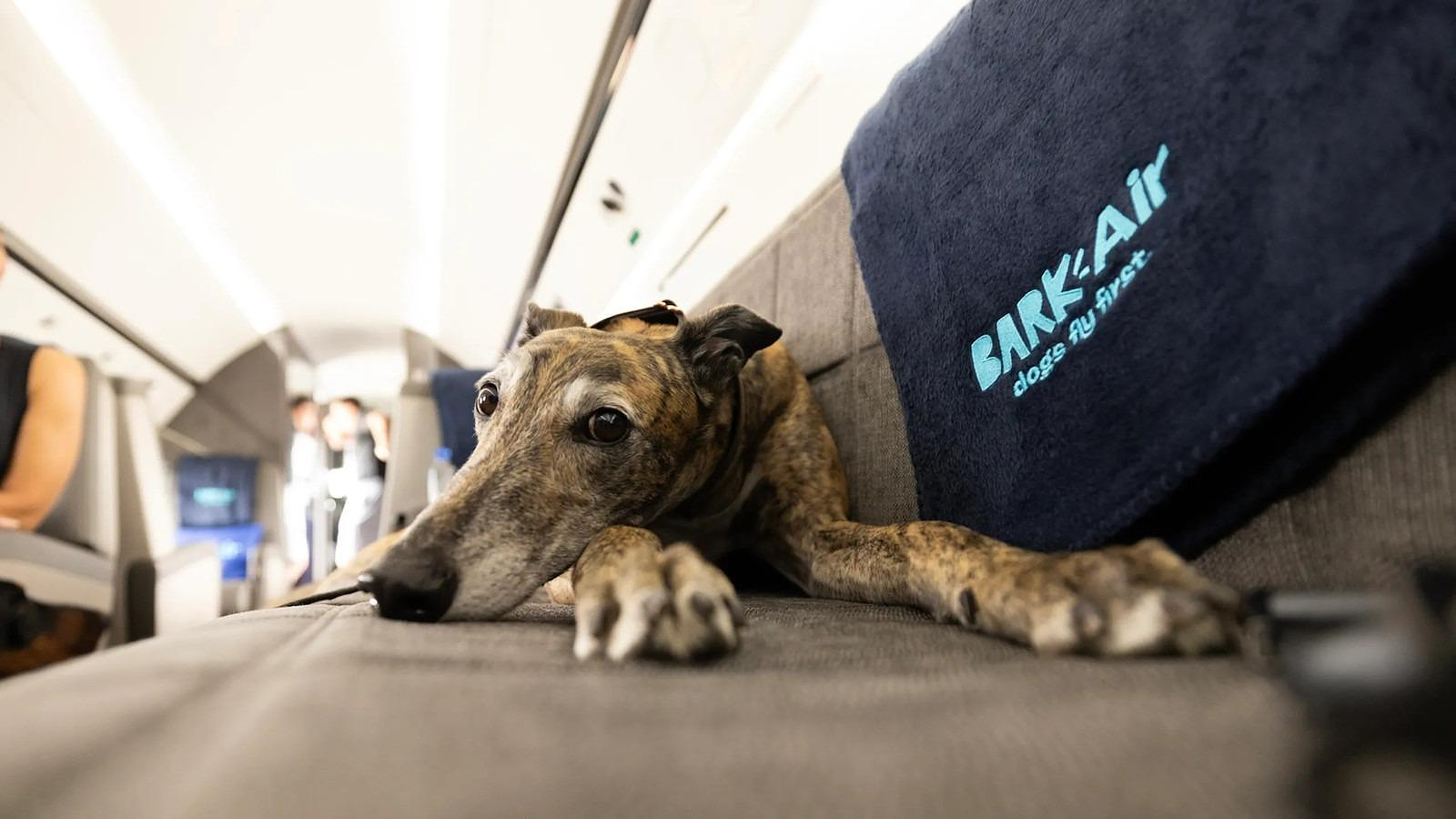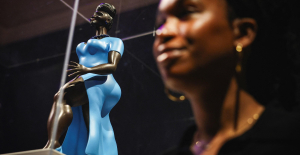Lord Fitzroy Somerset, 1st Baron Raglan (1788–1855) had enjoyed a career befitting a duke's son. Since he was not entitled to the Duke of Beaufort's family inheritance as a descendant, he was bought an officer's commission in the British Army. He was 15 then, and the wars against France offered ample opportunities to make a name for himself.
Somerset fought in Lord Wellington's army on the Iberian Peninsula, proved himself in numerous engagements and rose to become the personal secretary of the Commander-in-Chief. In 1814 he married a niece of Wellington, a year later he was knighted and promoted to colonel. In the fighting for Waterloo he was badly wounded and lost an arm. This did not prevent him from rising further in the diplomatic service and in Wellington's entourage, so that in 1852 he was admitted to the House of Lords as 1st Baron Raglan.
Because of his political experience, he received his first large troop command two years later. As Commander-in-Chief of all British troops "east of Malta" he was given supreme command of the Allied troops massed for the Crimean landings. The war broke out after Russian troops invaded the Ottoman principalities of Moldavia and Wallachia in the summer of 1853. To prevent them from advancing to the Bosphorus, England and France entered the war on Turkey's side. The Kingdom of Sardinia-Piedmont joined.
In order to block the Russian Black Sea Fleet, which had earlier destroyed the Ottoman naval power at Sinope, the allies aimed at Crimea. But even the landing in September 1854 made it clear that Raglan had not fought a battle, let alone led a major force, for nearly four decades.
“Hardly anyone on the expedition will forget the night of September 14th. Rarely, if ever, have 27,000 Englishmen found themselves in a more miserable situation,” said the war correspondent for the London Times, William Howard Russell, describing the start of the company. Raglan and his staff, who were almost as old as their boss, had neglected to provide tents. Provisions had only been landed for three days.
"Imagine these old generals and young lords and gentlemen, hour after hour exposed to the relentless might of the storm, bedless, lying on sodden blankets or useless waterproof cloaks in stinking puddles, and the 20,000 or so poor devils who had not an inch of dry ground and were forced to sleep, or at least try, in pools or streams, with no fire to warm them, no hot toddy, and no prospect of breakfast,” Russell wrote.
It was true that Raglan had been warned in good time that he would find difficult climatic and logistical conditions in the Crimea. However, he dismissed the suggestion that this should be taken into account when choosing equipment. This included the idea of allowing soldiers to grow beards: "I have rather old-fashioned ideas and cling to the wish that an Englishman should look like an Englishman, despite the fact that the French try to appear African , Turks and infidels... let's act like Englishmen."
However, clean water was in short supply. "We suffer terribly from water shortages," reported a military doctor. “We had nothing to drink but water from puddles from the previous night's rain; and even now the water is so dirty that when you pour it into a glass you cannot see the bottom.” It was not for nothing that the British lost more soldiers to disease and disease than to bullets and shells in the Crimean War.
"The knowledge of forty years of experience could not dissuade the military authorities from only letting the soldier go into the field when he was half strangled and unable to move under his load," complained a senior officer. It is therefore all the more astonishing that the Allies were able to begin the siege of the large sea fortress of Sevastopol on October 17th.
There the armies waged the horrors of modern trench warfare. A system of ramparts soon surrounded the city. Artillery came up and fired on the fortifications. But the calibers were too small to be able to breach them. The bombardment by the fleet had to be stopped because their wooden ships took more hits from the Russian shore batteries than they could take on land.
Raglan also waged a guerrilla war with the French leadership, whom he considered a more dangerous enemy than the Russians. At least the Allies managed to repel Russian attempts to break out or to relieve themselves. Raglan also made it clear that he knew little about tactics. Instead, he stuck to the great Wellington's motto of never surrendering a cannon to the enemy.
When Russian troops attacked the Allied supply base at Balaklava at the end of October 1854, the Commander-in-Chief issued one of the most quoted orders in English military history: “Lord Raglan wishes the cavalry to advance quickly to the front. Follow the enemy and try to prevent him from taking away the guns.” It was left to General Lord Lucan to clarify on which front to advance and which guns to save from being taken away.
The following death ride of the Light Brigade at Balaklava is considered, depending on your perspective, as a heroic sacrifice, the swan song of the age of cavalry attacks or the greatest blunder of a British general in the 19th century. Alfred Tennyson's poem "The Attack of the Light Brigade" became a patriotic confession, and Theodor Fontane's translation of the episode also made it known in German-speaking countries.
Still, Raglan retained his command. Russell's and other reports, however, built up pressure on the English public that at least the chaos in care and wound care was addressed. Its most prominent victim was Raglan himself. In June 1855 he fell ill with dysentery and died within a few days of "exhaustion due to diarrhea and mental grief", as it was said.
You can also find "World History" on Facebook. We are happy about a like.

 Germany: abortions should be authorized up to 12 weeks, concludes a commission launched by Olaf Scholz
Germany: abortions should be authorized up to 12 weeks, concludes a commission launched by Olaf Scholz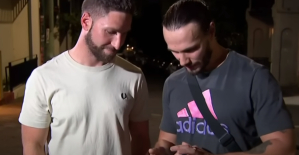 Knife attack in Australia: who are the two French heroes congratulated by Macron?
Knife attack in Australia: who are the two French heroes congratulated by Macron? Faced with an anxious Chinese student, Olaf Scholz assures that not everyone smokes cannabis in Germany
Faced with an anxious Chinese student, Olaf Scholz assures that not everyone smokes cannabis in Germany In the Solomon Islands, legislative elections crucial for security in the Pacific
In the Solomon Islands, legislative elections crucial for security in the Pacific Covid-19: everything you need to know about the new vaccination campaign which is starting
Covid-19: everything you need to know about the new vaccination campaign which is starting The best laptops of the moment boast artificial intelligence
The best laptops of the moment boast artificial intelligence Amazon invests 700 million in robotizing its warehouses in Europe
Amazon invests 700 million in robotizing its warehouses in Europe Inflation rises to 3.2% in March due to gasoline and electricity bills
Inflation rises to 3.2% in March due to gasoline and electricity bills Against drug trafficking, the mayor of Amsterdam advocates the regulation of cocaine
Against drug trafficking, the mayor of Amsterdam advocates the regulation of cocaine Hachette Livre removes Isabelle Saporta from management of Fayard
Hachette Livre removes Isabelle Saporta from management of Fayard Where is the MSC Aries, the ship boarded by Iran?
Where is the MSC Aries, the ship boarded by Iran? Denis Olivennes at Le Figaro: “CMI France discusses with Natacha Polony the future of Marianne”
Denis Olivennes at Le Figaro: “CMI France discusses with Natacha Polony the future of Marianne” 2024 Candidates Chess Tournament: Relive the Crucial Nepo-Gukesh Game
2024 Candidates Chess Tournament: Relive the Crucial Nepo-Gukesh Game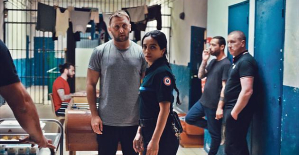 Borgo, by Stéphane Demoustier: locked outside
Borgo, by Stéphane Demoustier: locked outside Release of hostages and immediate ceasefire: at the Venice Biennale, the Israeli pavilion resonates with Gaza
Release of hostages and immediate ceasefire: at the Venice Biennale, the Israeli pavilion resonates with Gaza Two Russian artists declared “terrorists and extremists” because of a play
Two Russian artists declared “terrorists and extremists” because of a play Skoda Kodiaq 2024: a 'beast' plug-in hybrid SUV
Skoda Kodiaq 2024: a 'beast' plug-in hybrid SUV Tesla launches a new Model Y with 600 km of autonomy at a "more accessible price"
Tesla launches a new Model Y with 600 km of autonomy at a "more accessible price" The 10 best-selling cars in March 2024 in Spain: sales fall due to Easter
The 10 best-selling cars in March 2024 in Spain: sales fall due to Easter A private jet company buys more than 100 flying cars
A private jet company buys more than 100 flying cars This is how housing prices have changed in Spain in the last decade
This is how housing prices have changed in Spain in the last decade The home mortgage firm drops 10% in January and interest soars to 3.46%
The home mortgage firm drops 10% in January and interest soars to 3.46% The jewel of the Rocío de Nagüeles urbanization: a dream villa in Marbella
The jewel of the Rocío de Nagüeles urbanization: a dream villa in Marbella Rental prices grow by 7.3% in February: where does it go up and where does it go down?
Rental prices grow by 7.3% in February: where does it go up and where does it go down? Europeans: the schedule of debates to follow between now and June 9
Europeans: the schedule of debates to follow between now and June 9 Europeans: “In France, there is a left and there is a right,” assures Bellamy
Europeans: “In France, there is a left and there is a right,” assures Bellamy During the night of the economy, the right points out the budgetary flaws of the macronie
During the night of the economy, the right points out the budgetary flaws of the macronie Europeans: Glucksmann denounces “Emmanuel Macron’s failure” in the face of Bardella’s success
Europeans: Glucksmann denounces “Emmanuel Macron’s failure” in the face of Bardella’s success These French cities that will boycott the World Cup in Qatar
These French cities that will boycott the World Cup in Qatar Bundesliga: Naby Keita suspended by Werder Bremen until the end of the season
Bundesliga: Naby Keita suspended by Werder Bremen until the end of the season Euro 2024: the Blues reveal their opponents for friendlies in June
Euro 2024: the Blues reveal their opponents for friendlies in June Cycling: De Marchi wins the 2nd stage of the Tour of the Alps
Cycling: De Marchi wins the 2nd stage of the Tour of the Alps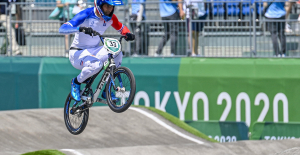 Paris Olympics 2024: Joris Daudet (BMX) candidate to be French flag bearer
Paris Olympics 2024: Joris Daudet (BMX) candidate to be French flag bearer




